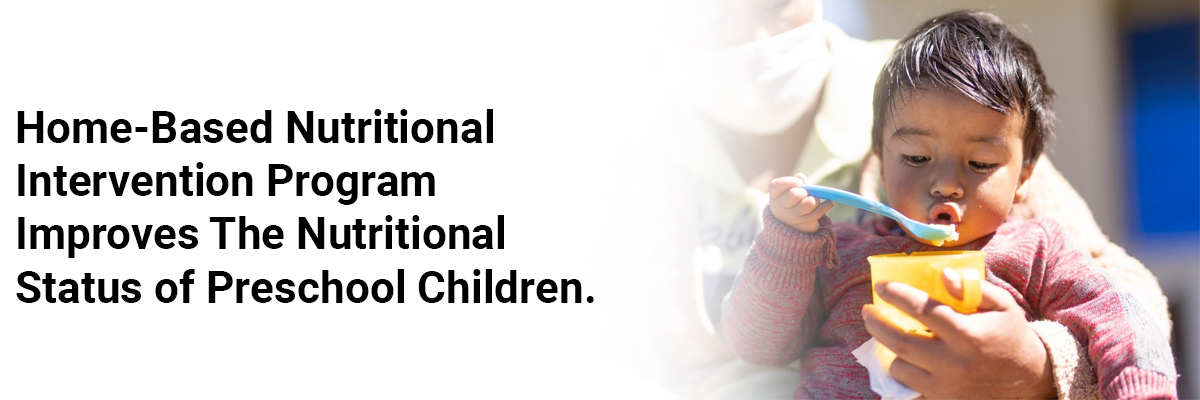
 IJCP Editorial Team
IJCP Editorial Team
Home-based nutritional intervention program improves the nutritional status of preschool children.
Undernutrition among children under the age of five is a pervasive global health challenge that contributes to increased morbidity and mortality rates. In an effort to address this issue, the present study sought to examine the impact of a home-based nutritional intervention on the nutritional status of preschool children residing in rural areas of South India. The study focused on weight gain as the primary outcome measure.
A cluster comprising 12 villages was randomly assigned to either the intervention or control group, with a total of 253 underweight preschool children from these clusters being randomized accordingly. The intervention arm, consisting of 127 children, received a comprehensive approach, including a health-teaching program and practical demonstrations of nutritious food preparation, in addition to the regular services provided at Anganwadi centers. On the other hand, the control group (126 children) only received the standard routine care available at the Anganwadi centers. Anthropometric assessments were conducted at baseline and continued monthly for a duration of one year.
The results revealed-
- A significant increase in mean weight among children in the intervention group compared to the control group.
- The intervention led to a noteworthy decrease in the prevalence of moderate malnutrition from 41.5% at baseline to 24% at the end of the year.
- Severe malnutrition also declined from 8.69% to 3.16%, and 20.5% of malnourished children achieved normal nutritional status.
- The control group displayed minimal changes in nutritional status.
- Statistical analysis of repeated measures of ANOVA results for weight and height measurements between the intervention and control groups further substantiated the significance of the findings.
Overall, this study demonstrates that a home-based nutritional intervention, which includes educating mothers or caregivers about planning and preparing healthy diets, providing timely care, and enhancing their understanding of nutritional status along with regular home-based diet preparation, can effectively improve the nutritional status of preschool children.
BA, Nayak BS, BU. et al. Impact of a home-based nutritional intervention program on nutritional status of preschool children: a cluster randomized controlled trial. BMC Public Health. 2023; 23. https://doi.org/10.1186/s12889-022-14900-4

IJCP Editorial Team
Comprising seasoned professionals and experts from the medical field, the IJCP editorial team is dedicated to delivering timely and accurate content and thriving to provide attention-grabbing information for the readers. What sets them apart are their diverse expertise, spanning academia, research, and clinical practice, and their dedication to upholding the highest standards of quality and integrity. With a wealth of experience and a commitment to excellence, the IJCP editorial team strives to provide valuable perspectives, the latest trends, and in-depth analyses across various medical domains, all in a way that keeps you interested and engaged.





















Please login to comment on this article